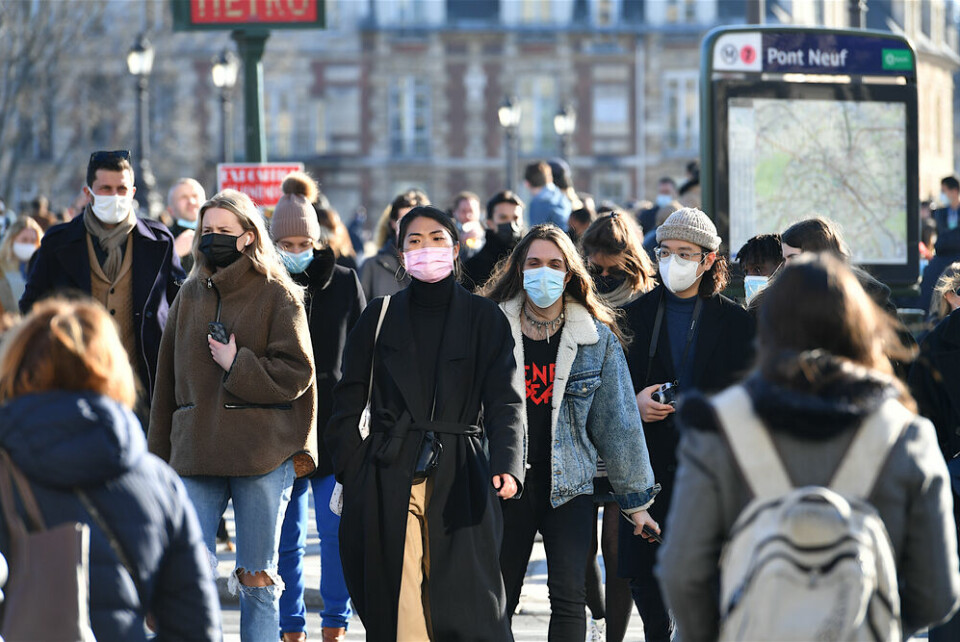-
La Voie Bleue: European Cycle Route of the Year is in France
700km bike path linking Luxembourg and Lyon has been crowned winner of the 2026 title
-
MAP: See how your location in France affects online food shop prices
New analysis shows how your shop compares on average
-
Further sightings of processionary caterpillars in France prompt action from local authorities
Caterpillars have arrived early after mild winter
Number of people catching Covid twice rising in France due to Omicron
There were nearly 700,000 possible reinfections in the past year, with 95.2% of them occurring since December 6

The rate of Covid cases attributed as being reinfections is rising in France due to the more contagious Omicron variant, health agency Santé publique France (SPF) stated in a report published Friday (April 1).
Reinfections now make up 5.4% of the total positive cases, SPF wrote.
The health authority defines re-infections as being when a person tests positive two or more times 60 days or more apart. On average, there are 242 days (nearly eight months) between reinfections.
In total, 685,858 cases recorded between March 2, 2021 and March 20, 2022 have been identified as reinfections, with 95.2% of those being reported since December 6, around the time that Omicron started to spread in France.
Around half of all reinfections were attributed to people aged between 18 and 40, and 88% were linked to the Omicron variant, SPF wrote.
“It seems likely that the waning of immunity created by vaccines or having been infected is playing a role in the reinfections,” SPF stated.
“This is particularly the case for those who have not had a booster dose.”
"It is also very likely that the high spread of the Omicron variant, characterised by an increased transmissibility and an important immune escape, amplifies this phenomenon.”
The number of reported Covid cases in France has been rising steadily since early March.
Read more: Coronavirus: Daily updates on the situation in France
Read more: French Covid case numbers highest in Brittany – and still rising
Could presidential elections lead to one million more Covid cases?
People who have tested positive for Covid “will be able to go and vote” in April’s presidential election, government spokesperson Gabriel Attal announced on Wednesday (March 30).
Read more: People with Covid will be able to vote in French presidential election
Following this announcement, the head of the infectious diseases department at Tenon Hospital in Paris, Gilles Pialoux, said that this could lead to one million new Covid cases.
He said that while it is not possible to prevent people from voting, “between the two rounds, that is a lot of people and if we have a very high circulation of cases…there could be a million cases in a fortnight”, he told RTL.
But other health experts have contested this.
Antoine Flahault, epidemiologist and director of the Institute of Global Health at the University of Geneva, said that the elections representing only a “small risk”.
“The trend in cases should, from next week onwards, reverse and perhaps reach a peak… so the election should not change this,” he told Le Figaro.
Mircea Sofonea, a lecturer in epidemiology and the evolution of infectious diseases at the université de Montpellier, said:
“A million cases is possible in the case of a large spread. But it won't have a dramatic impact on hospital admissions."
Related stories
When will we know the results of France’s presidential election?
Head of French Covid victims group sues firms hired to manage pandemic
























